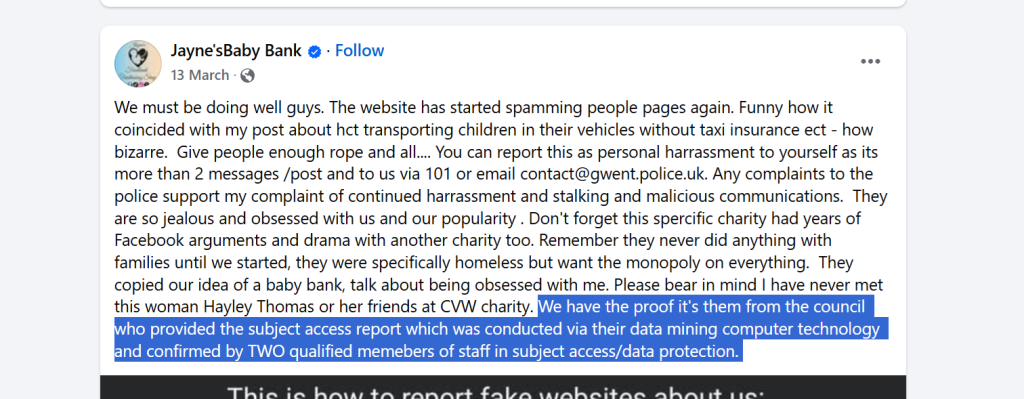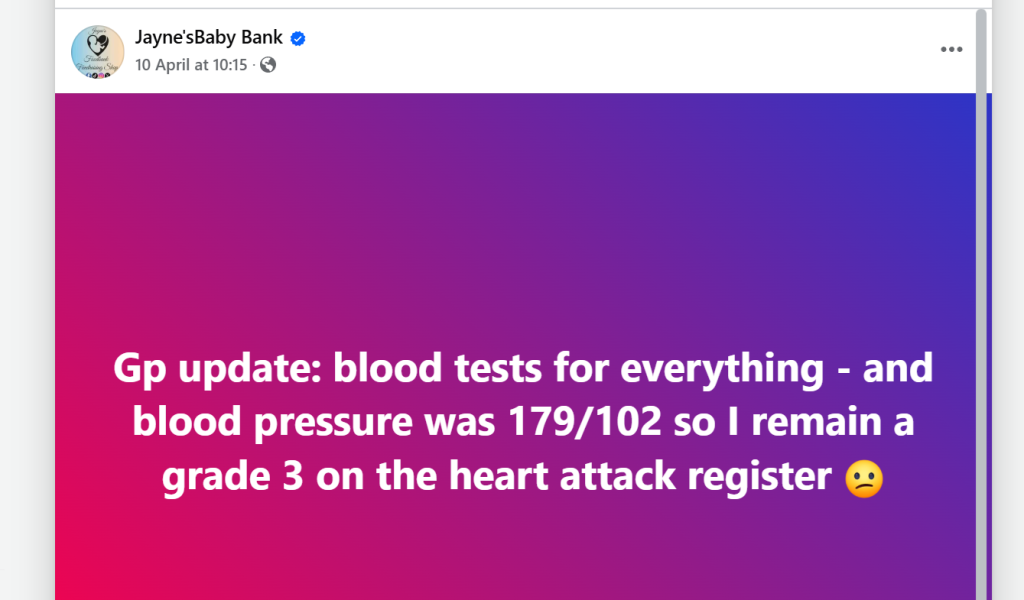Welcome to the Wall of Shame.
Below is a collection of notable social media posts from the self-proclaimed “most qualified person” to operate a Baby Bank in the UK. Some of these have been featured by us before, while others are new. We believe it is our responsibility to revisit and highlight past statements made by the Baby Bank, in hopes that parents and donors make more informed decisions.
Ask yourself: Why does Miss Ridsdale avoid linking directly to our website or addressing each of our documented claims point by point? The answer is simple—we present fully sourced data from verified agencies, platforms, and other credible outlets.
Let’s begin:
To be eligible for a Biochemistry degree in the UK, applicants typically need a strong academic foundation in science subjects—particularly Biology and Chemistry at A-level or equivalent. Many universities also expect good results in related subjects such as Mathematics or Physics, along with solid GCSE grades across the board.
It’s also worth noting that neither Carrie-Anne Ridsdale nor Jayne Price are listed as registered nurses or midwives with the Nursing and Midwifery Council (NMC) in the UK. Furthermore, we were unable to verify any association with an NHS email address—typically used by those working within the NHS system.
Previous claims of overseeing high-level company finances have already been addressed in earlier posts. However, it’s relevant to note that Carrie-Anne would have been just 16 years old at the time referenced, which aligns more closely with her prior employment at B&Q than boardroom oversight.
We have thoroughly examined the subject access request, which revealed details including the operator’s real name, personal email address, and documented health conditions such as dyslexia and ADHD. Additionally, internal council and Trading Standards correspondence confirms an extensive volume of public complaints, leading to at least one internal investigation. You can read our full analysis here.
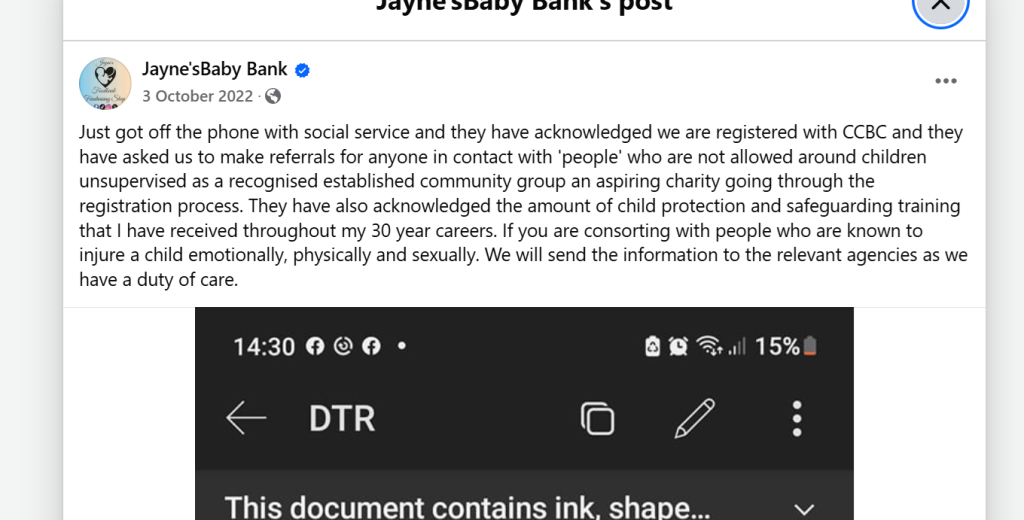
We have also confirmed with local social services that certain referral claims could not be substantiated. Our detailed post on that is available here.
There appears to be confusion between hypertension (high blood pressure) and cardiac event risk. In the UK, there is no such thing as a “heart attack register” for hypertension. NHS clinicians may use tools like QRISK3 to assess 10-year cardiovascular risk, but no formal grading system for heart attacks exists. Some of the terminology appears to conflate unrelated systems of classification.
In 2022, Carrie-Anne publicly stated she was receiving palliative care due to a tumour, and referred to aplastic anaemia as a type of bone marrow cancer—which medical professionals clarify is inaccurate. A subsequent livestream appeared to contradict those earlier claims. Watch that clip here.
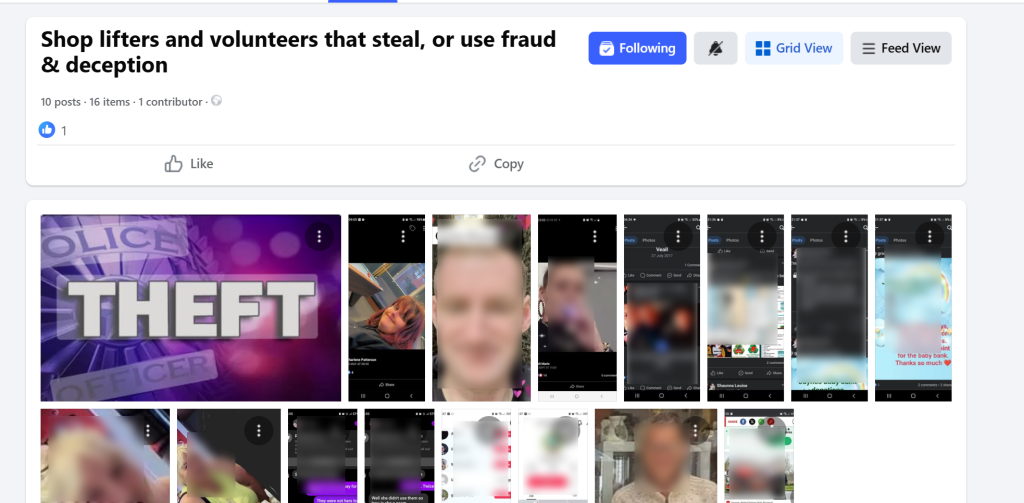
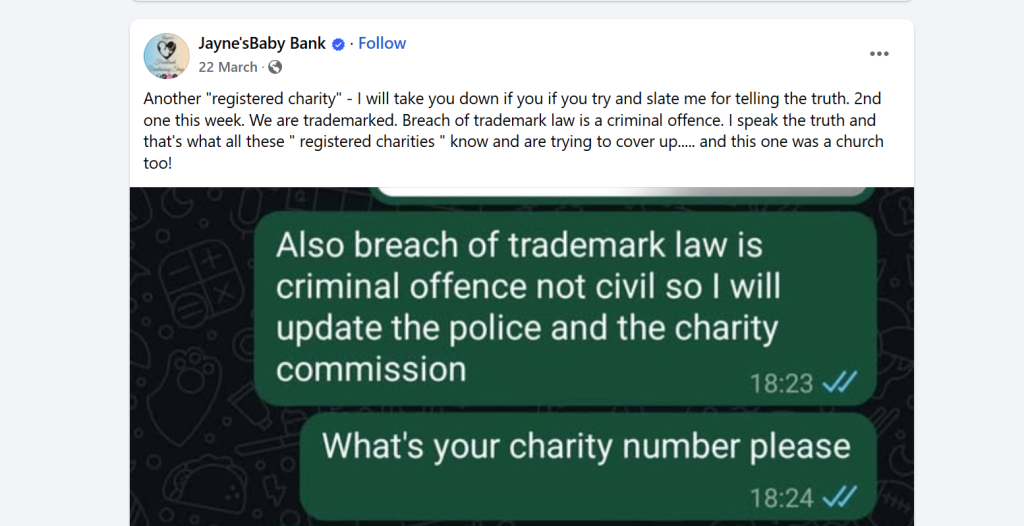
One Facebook post accuses a church-run charity of trademark infringement. However, the registered mark relates to a visual logo only. “Jayne’s Baby Bank” has no exclusive rights to the phrase “baby bank,” nor does it own the image it’s currently using under the “Charity Shop” trademark.
Despite rebranding efforts, various interactions with other baby banks have been reported following direct outreach by the operator, which we’ve confirmed via independent sources.
Basic essentials, such as nappies, are advertised as “free” but appear to be provided with strings attached, according to user reports. We’ve documented these inconsistencies here.
AI Analysis:
We submitted a transcript of this video for AI-based content analysis. Here’s a summary:
Content reveals signs of emotionally driven and defensive speech patterns, consistent with attempts to deflect criticism and reframe public scrutiny. Specific rhetorical tactics included:
- Frequent emotional appeals
- Use of hostile language toward critics
- Repeated self-praise and martyrdom themes
- Deflections of transparency or regulatory accountability
We also analysed a second video for tone and content, which showed similar trends.
- Aggressive and mocking language aimed at individuals
- Dismissal of legal procedure and lack of factual support
- Frequent legal threats lacking foundation
Finally, in a video filmed from inside a vehicle, Carrie-Anne appears to describe the effects of morphine while driving. NHS guidance on morphine clearly warns against operating a vehicle under its influence, due to possible drowsiness and delayed reaction times.
Sherlock.
Legal Note: All statements above are based on publicly available materials and/or commentary submitted through proper reporting channels. AI-assisted content is offered for informational and educational purposes only and does not constitute legal, medical, or regulatory advice. All individuals are presumed innocent unless proven otherwise in a court of law.



